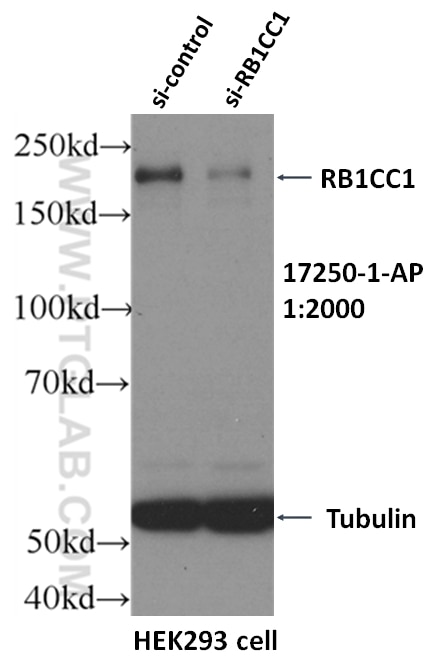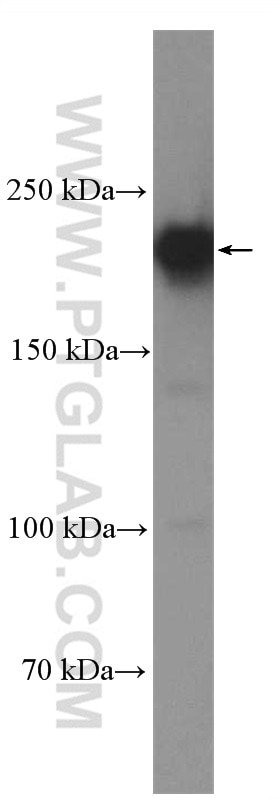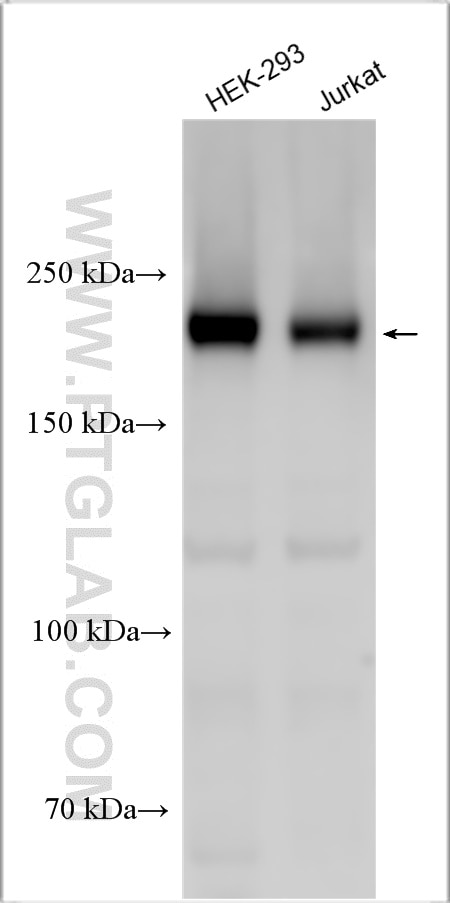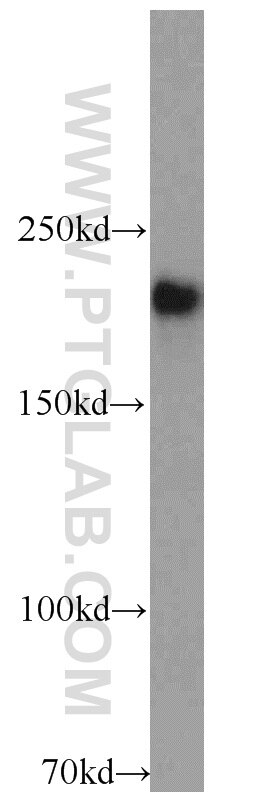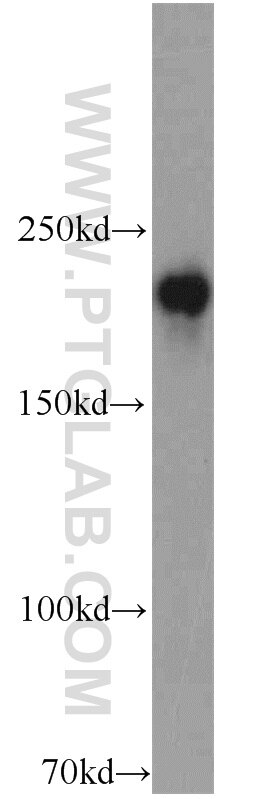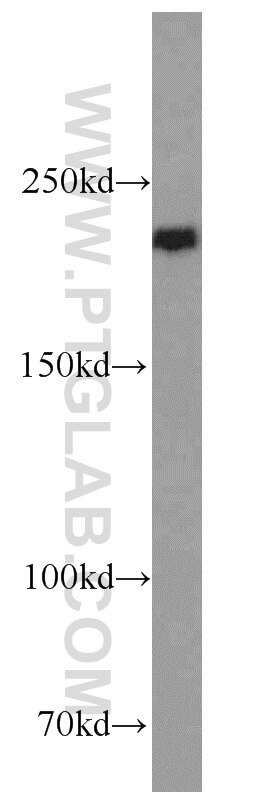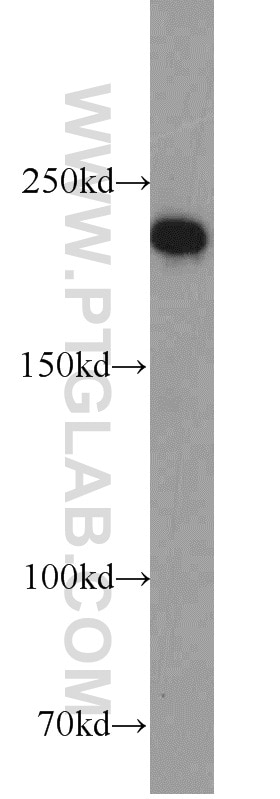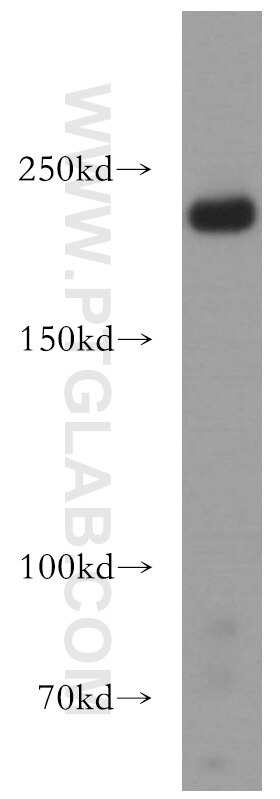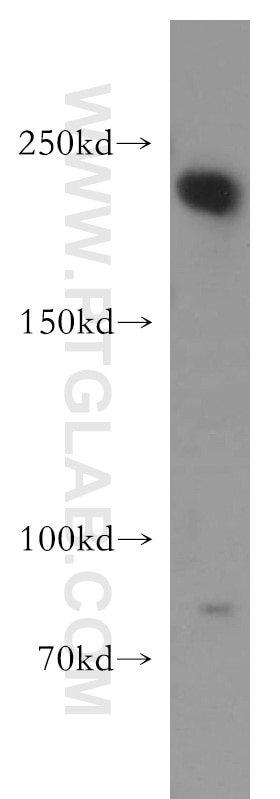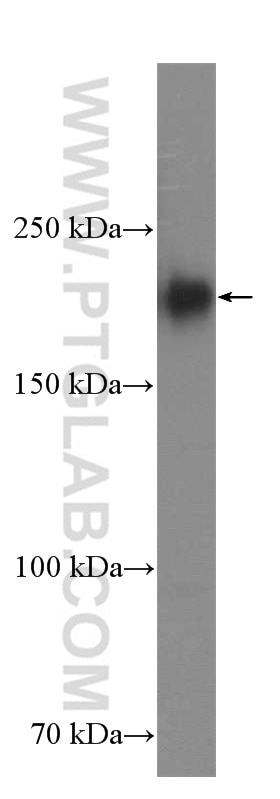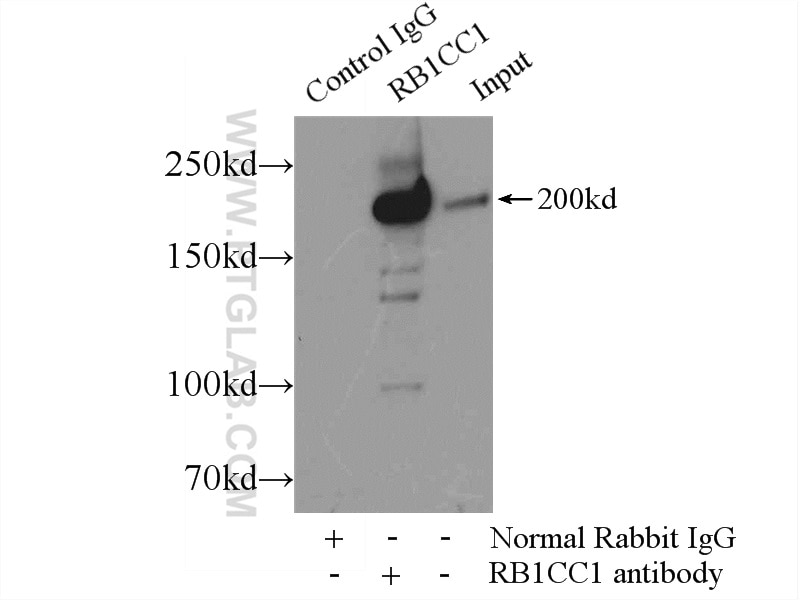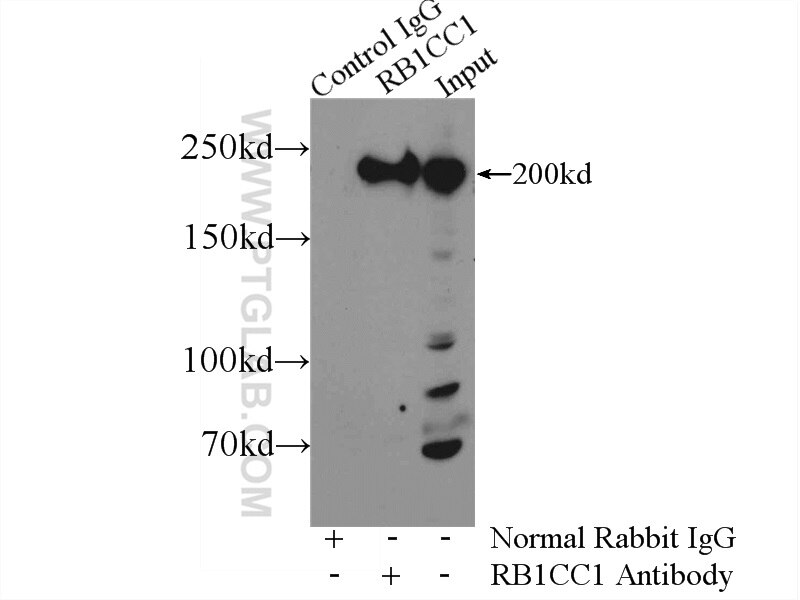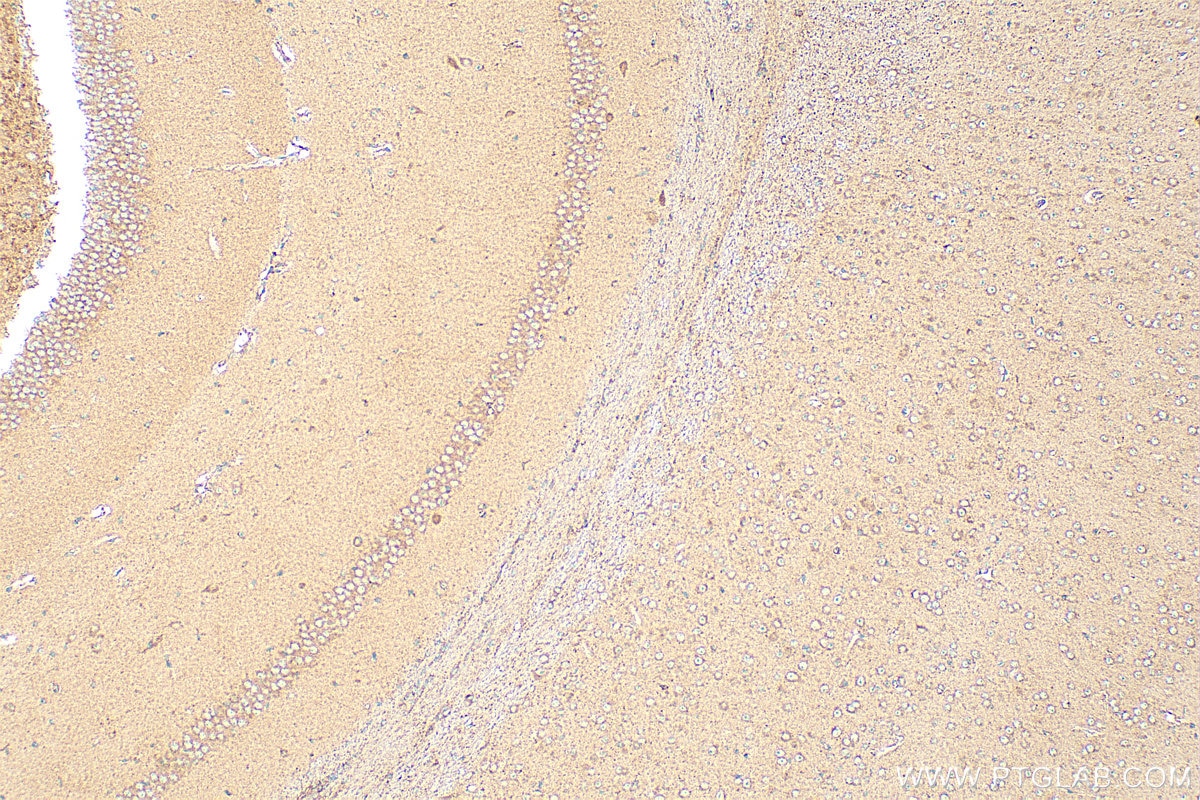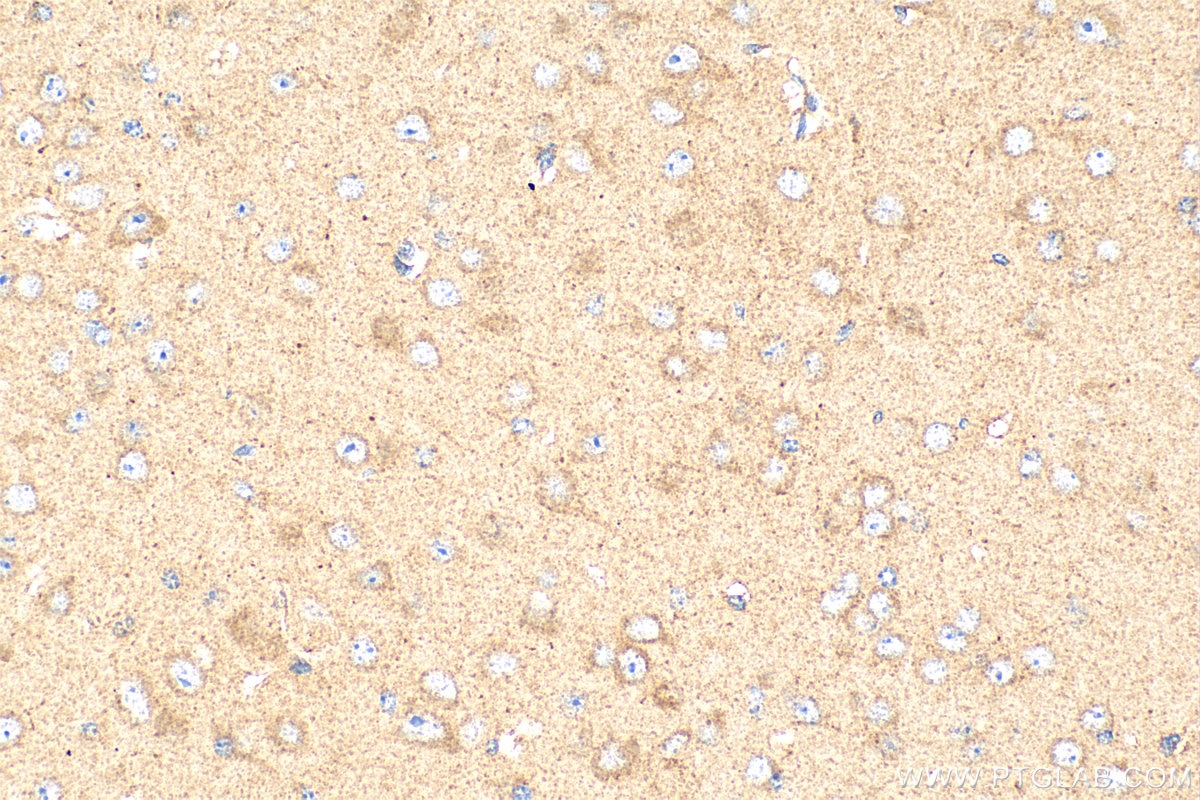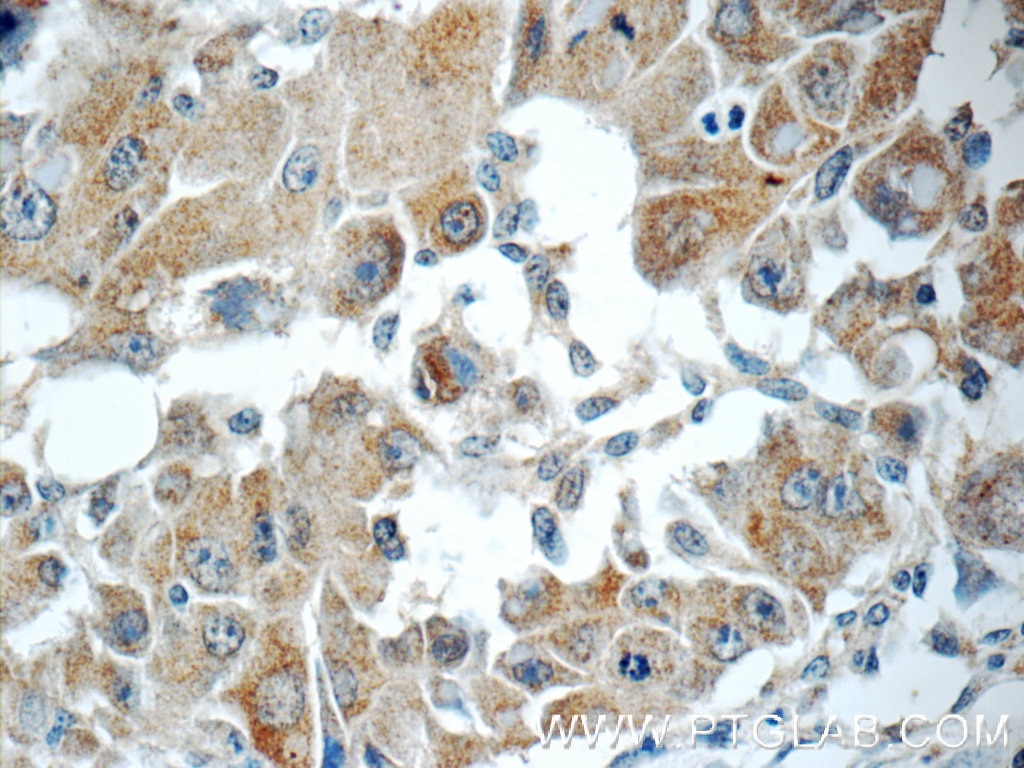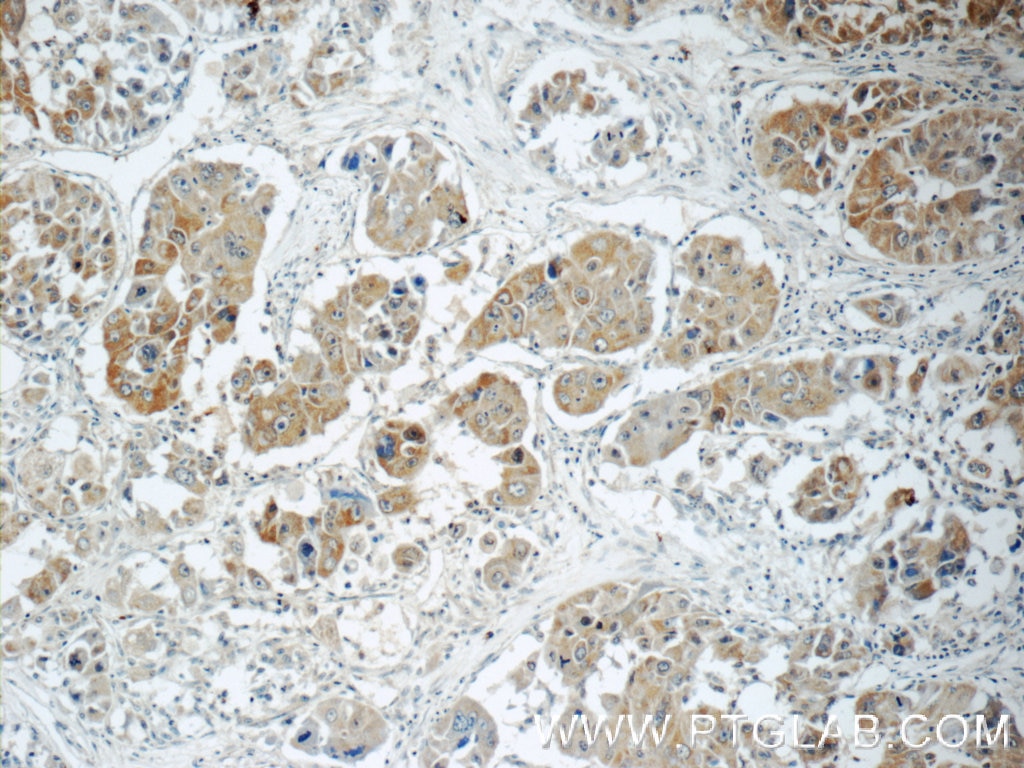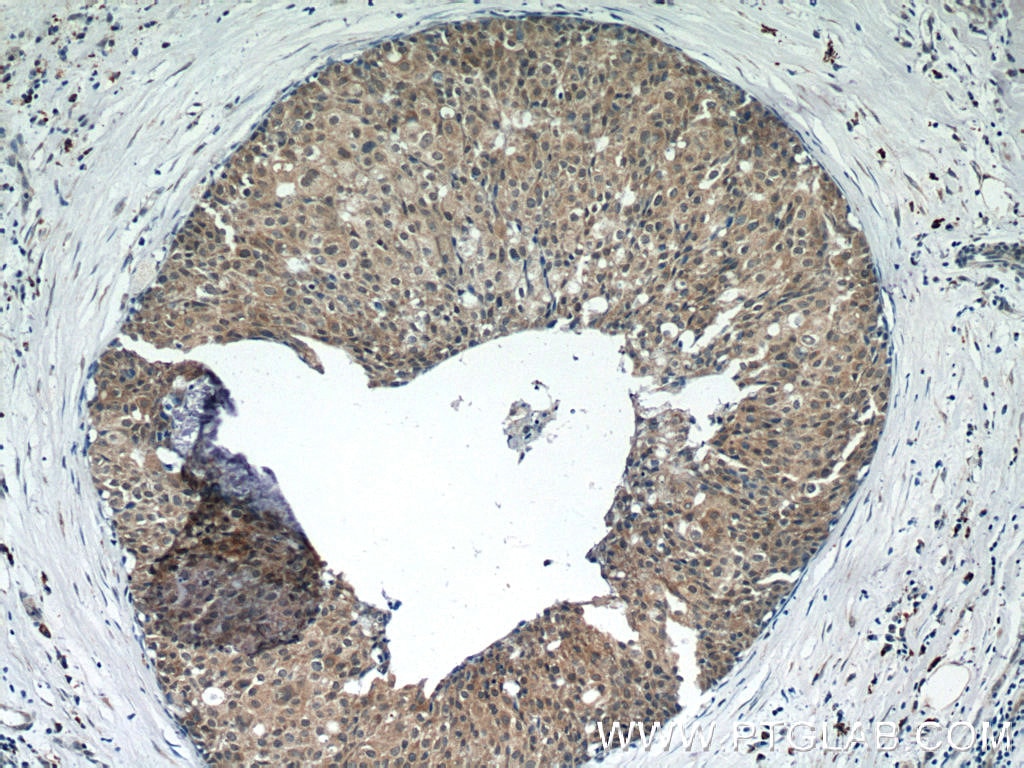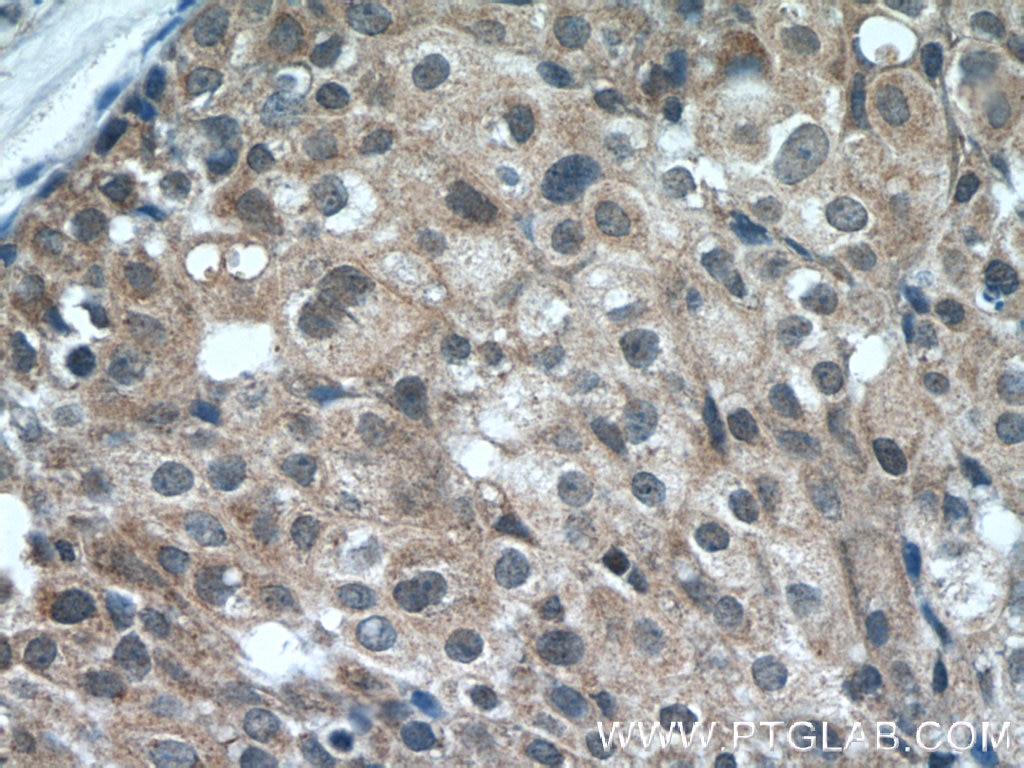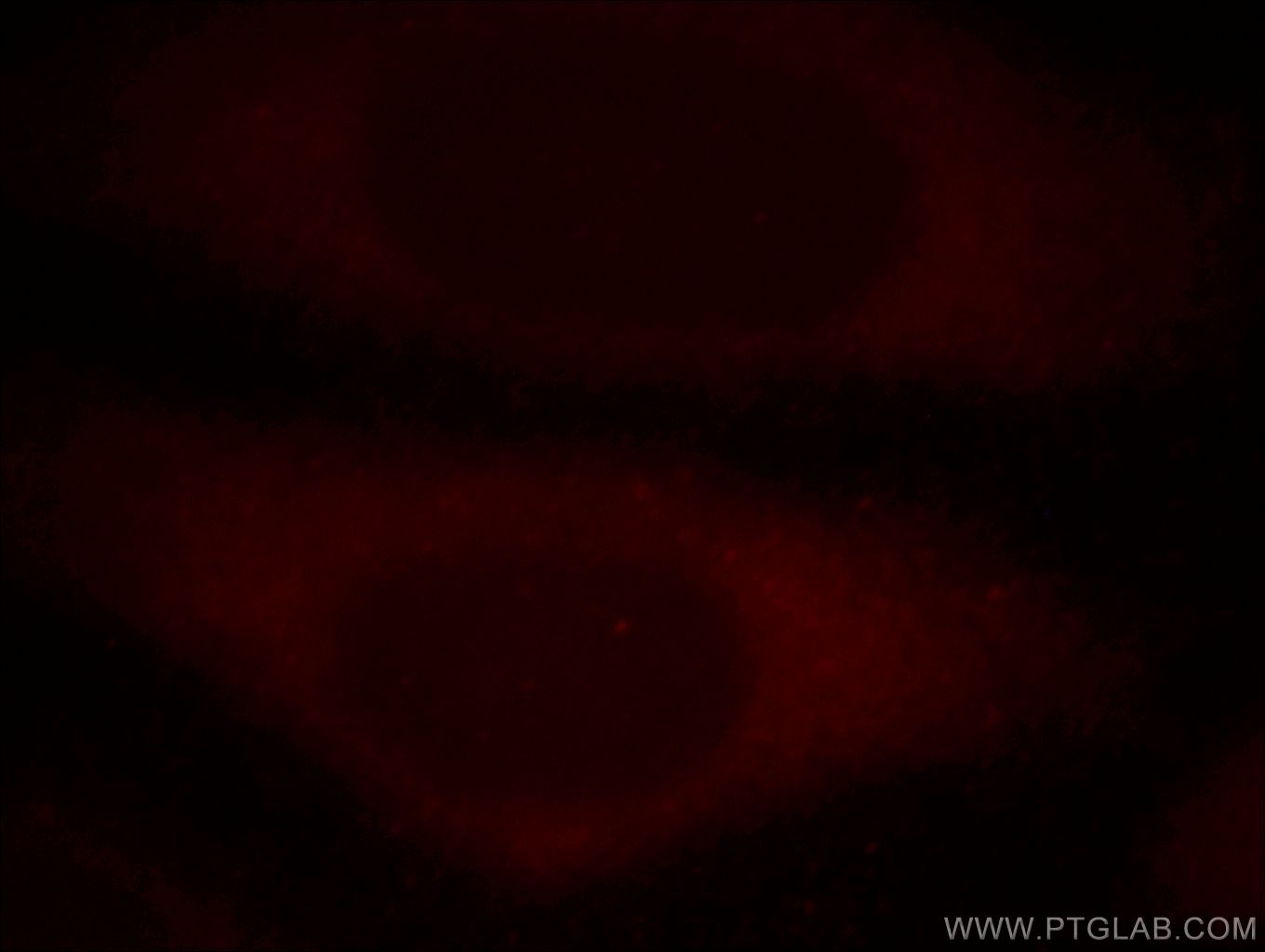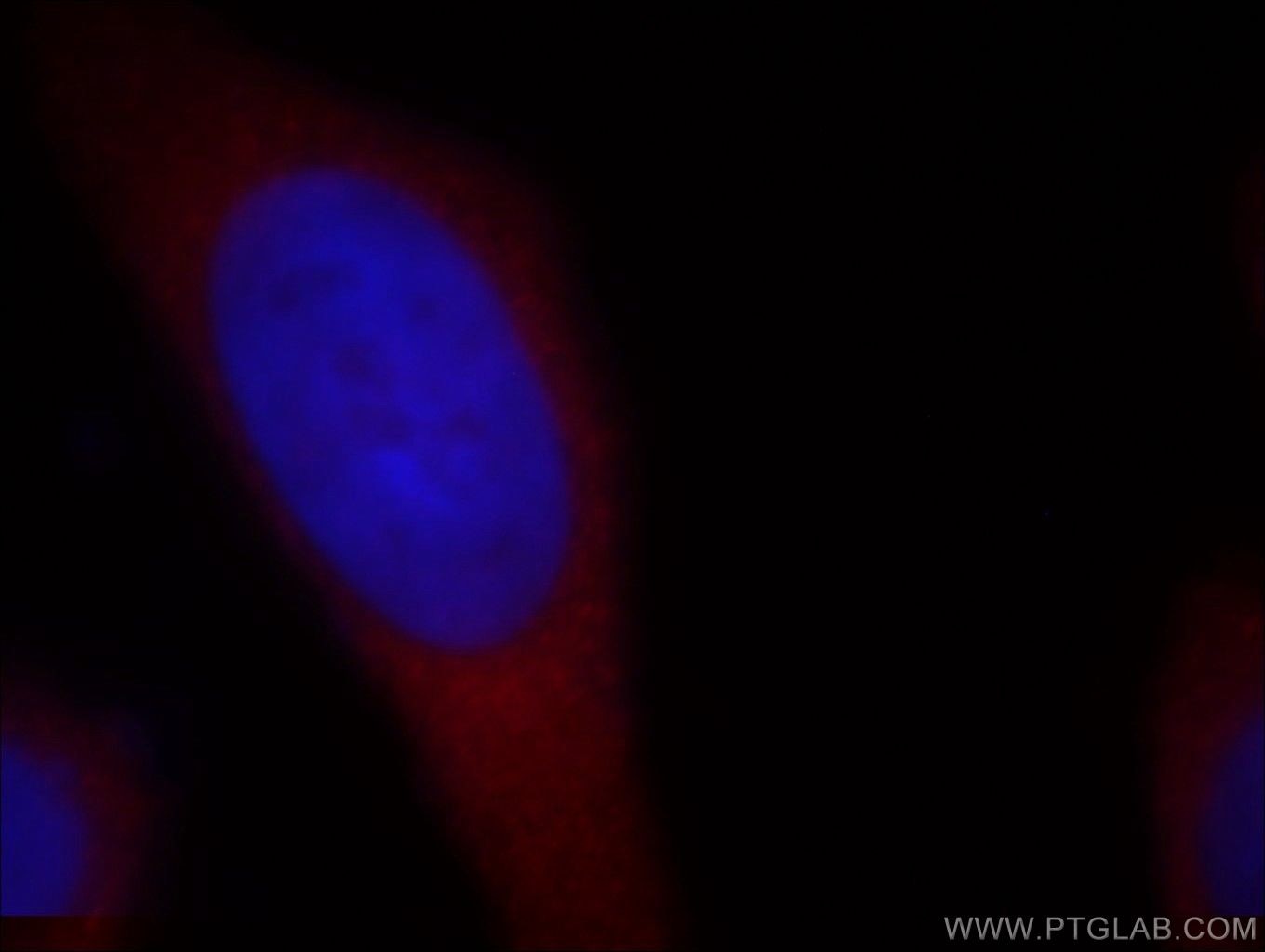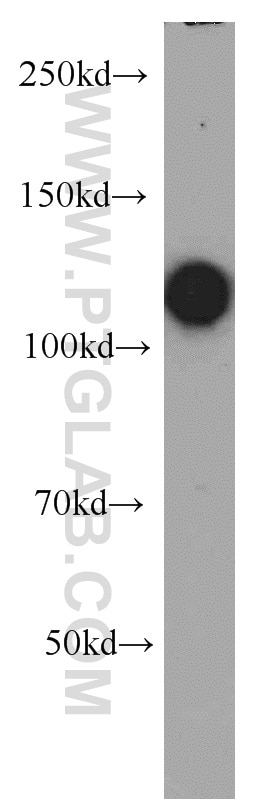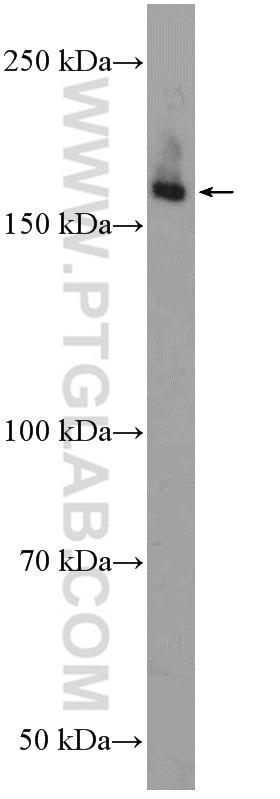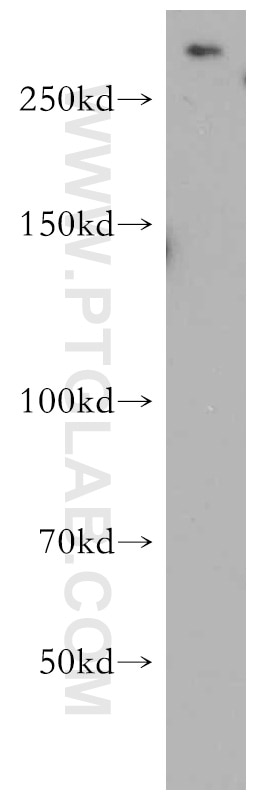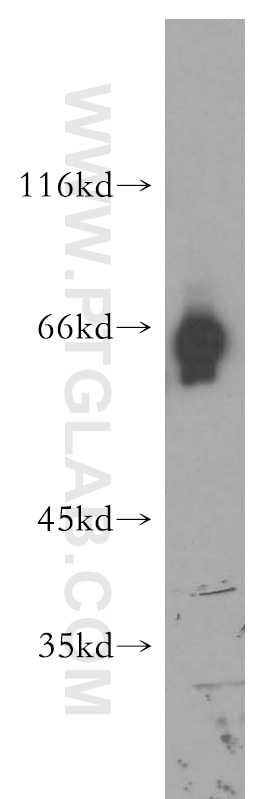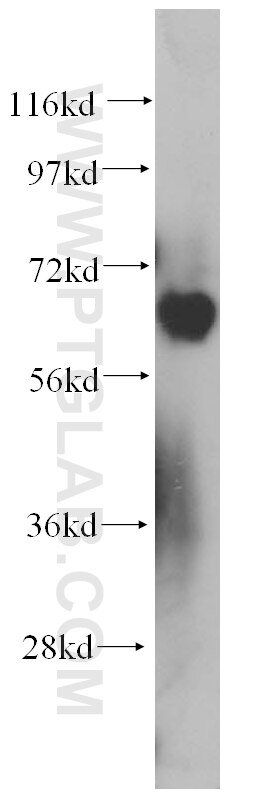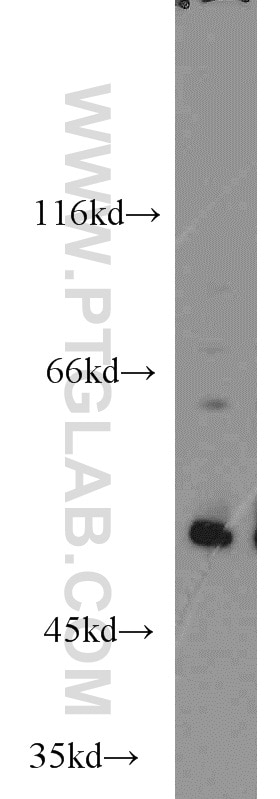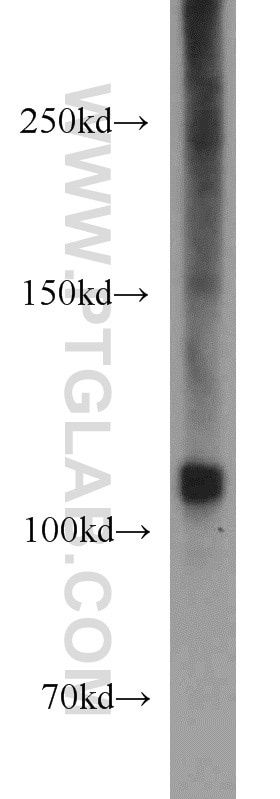- Phare
- Validé par KD/KO
Anticorps Polyclonal de lapin anti-RB1CC1
RB1CC1 Polyclonal Antibody for WB, IHC, IF/ICC, IP, ELISA
Hôte / Isotype
Lapin / IgG
Réactivité testée
Humain, rat, souris et plus (1)
Applications
WB, IHC, IF/ICC, IP, CoIP, ELISA
Conjugaison
Non conjugué
N° de cat : 17250-1-AP
Synonymes
Galerie de données de validation
Applications testées
| Résultats positifs en WB | cellules HEK-293, cellules Jurkat, cellules K-562, cellules MCF-7 |
| Résultats positifs en IP | cellules HEK-293 |
| Résultats positifs en IHC | tissu cérébral de souris, tissu de cancer du foie humain, tissu de cancer du sein humain il est suggéré de démasquer l'antigène avec un tampon de TE buffer pH 9.0; (*) À défaut, 'le démasquage de l'antigène peut être 'effectué avec un tampon citrate pH 6,0. |
| Résultats positifs en IF/ICC | cellules HepG2, cellules MCF-7 |
Dilution recommandée
| Application | Dilution |
|---|---|
| Western Blot (WB) | WB : 1:5000-1:50000 |
| Immunoprécipitation (IP) | IP : 0.5-4.0 ug for 1.0-3.0 mg of total protein lysate |
| Immunohistochimie (IHC) | IHC : 1:400-1:1600 |
| Immunofluorescence (IF)/ICC | IF/ICC : 1:10-1:100 |
| It is recommended that this reagent should be titrated in each testing system to obtain optimal results. | |
| Sample-dependent, check data in validation data gallery | |
Applications publiées
| KD/KO | See 16 publications below |
| WB | See 65 publications below |
| IHC | See 5 publications below |
| IF | See 31 publications below |
| IP | See 2 publications below |
| CoIP | See 3 publications below |
Informations sur le produit
17250-1-AP cible RB1CC1 dans les applications de WB, IHC, IF/ICC, IP, CoIP, ELISA et montre une réactivité avec des échantillons Humain, rat, souris
| Réactivité | Humain, rat, souris |
| Réactivité citée | rat, Humain, singe, souris |
| Hôte / Isotype | Lapin / IgG |
| Clonalité | Polyclonal |
| Type | Anticorps |
| Immunogène | RB1CC1 Protéine recombinante Ag10508 |
| Nom complet | RB1-inducible coiled-coil 1 |
| Masse moléculaire calculée | 1594 aa, 183 kDa |
| Poids moléculaire observé | 200 kDa |
| Numéro d’acquisition GenBank | BC017556 |
| Symbole du gène | RB1CC1 |
| Identification du gène (NCBI) | 9821 |
| Conjugaison | Non conjugué |
| Forme | Liquide |
| Méthode de purification | Purification par affinité contre l'antigène |
| Tampon de stockage | PBS avec azoture de sodium à 0,02 % et glycérol à 50 % pH 7,3 |
| Conditions de stockage | Stocker à -20°C. Stable pendant un an après l'expédition. L'aliquotage n'est pas nécessaire pour le stockage à -20oC Les 20ul contiennent 0,1% de BSA. |
Informations générales
RB1CC1, also named as RBICC or FIP200, is implicated in the regulation of RB1 expression and functions as a DNA-binding transcription factor. It is a potent regulator of the RB1 pathway and a mediator that plays a crucial role in muscular differentiation. Its expression is, thus, a prerequisite for myogenic differentiation. Involved in autophagy. RB1CC1 is required for autophagosome formation. It is probably involved in the tumorigenesis of breast cancer. RB1CC1 is frequently mutated in breast cancer and shows characteristics of a classical tumor suppressor gene. This antibody is a rabbit polyclonal antibody raised against residues near the C terminus of human RB1CC1. the calculated molecular weight of RB1CC1 is 180 kDa, but the modified RB1CC1 is about 200 kDa.
Protocole
| Product Specific Protocols | |
|---|---|
| WB protocol for RB1CC1 antibody 17250-1-AP | Download protocol |
| IHC protocol for RB1CC1 antibody 17250-1-AP | Download protocol |
| IF protocol for RB1CC1 antibody 17250-1-AP | Download protocol |
| IP protocol for RB1CC1 antibody 17250-1-AP | Download protocol |
| Standard Protocols | |
|---|---|
| Click here to view our Standard Protocols |
Publications
| Species | Application | Title |
|---|---|---|
Nat Immunol Essential role for GABARAP autophagy proteins in interferon-inducible GTPase-mediated host defense. | ||
Cell Res A new type of ERGIC-ERES membrane contact mediated by TMED9 and SEC12 is required for autophagosome biogenesis.
| ||
Nat Cell Biol The LC3-conjugation machinery specifies the loading of RNA-binding proteins into extracellular vesicles.
| ||
Cancer Commun (Lond) Targeting autophagy overcomes cancer-intrinsic resistance to CAR-T immunotherapy in B-cell malignancies |
Avis
The reviews below have been submitted by verified Proteintech customers who received an incentive forproviding their feedback.
FH SANGAPPA (Verified Customer) (01-04-2020) | Works very good in western blotting!
|
